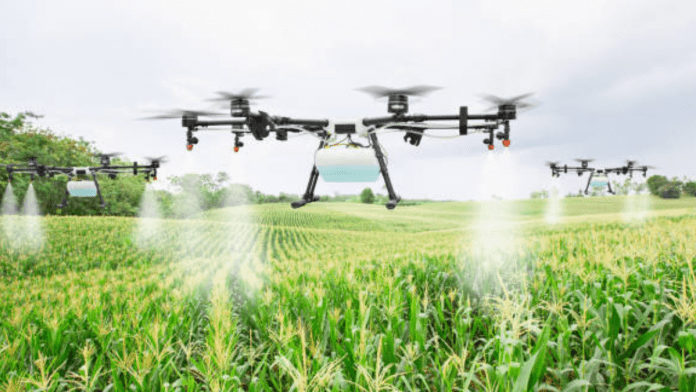News in brief:
– Manitoba’s policy organisation, KAP, aims to broaden regulations on drone use in agricultural research, citing current restrictions hindering innovation.
– Its advocacy for prioritising renewable diesel in agriculture gains traction, despite concerns over infrastructure readiness.
Keystone Agricultural Producers (KAP), a policy organisation in Manitoba, a province in Canada, is spearheading efforts to urge the Pest Management Regulatory Agency (PMRA) to revise regulations concerning drone usage in agricultural research.
Presently, PMRA guidelines permit drones solely for herbicide and pesticide spraying if the product label explicitly authorises such use. However, the organisation’s issue lies in the limited approval of product labels, which significantly hinders research activities.
At the recent KAP Annual General Meeting (AGM) on January 25, a pivotal resolution surfaced, advocating for PMRA to adopt more adaptable regulations regarding research drone applications. District 3 member Reg Dyck initiated the resolution, citing instances where research was hampered due to stringent regulations.
In a statement, Dyck highlighted the contrast with the United States, where regulations are less restrictive, fostering innovation and research progression. He emphasised the urgent need to adapt to evolving technologies to remain competitive in the agricultural sector.

Renewable diesel advocacy and more possible agricultural-related changes coming soon to Canada
Another resolution, presented by David Rourke, sought government support for prioritising renewable diesel in agriculture. Rourke emphasised the environmental benefits and urged proactive measures to integrate renewable diesel into farming practices.
Despite lively debate regarding the prioritisation of renewable diesel, delegates ultimately supported Rourke’s proposal. However, concerns were raised regarding infrastructure readiness to support renewable diesel production.
Dennis Thiessen’s resolution, advocating for the reconstruction of a vital bridge over the Manning Canal, shed light on the infrastructural challenges faced by rural communities. Meanwhile, Marg Rempel highlighted the broader implications of inadequate infrastructure on agriculture and local businesses.
Addressing concerns over insufficient conservation officers, Charles Fossay’s resolution underscored the need for adequate enforcement resources to uphold environmental regulations, stressing the impact of inadequate staffing on rural areas.
John Sandborn’s proposal for a Canadian Grain Act (CGA) summit emphasized the importance of collective action to ensure policies align with farmers’ interests, echoing sentiments from neighboring provinces.



